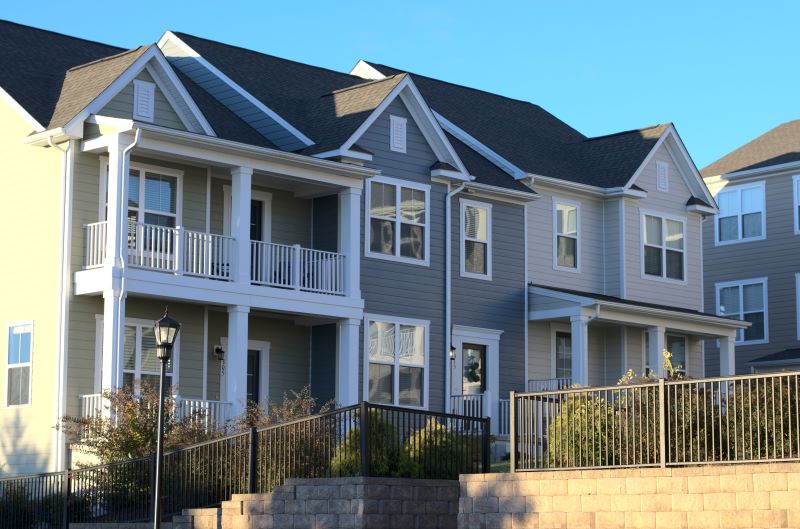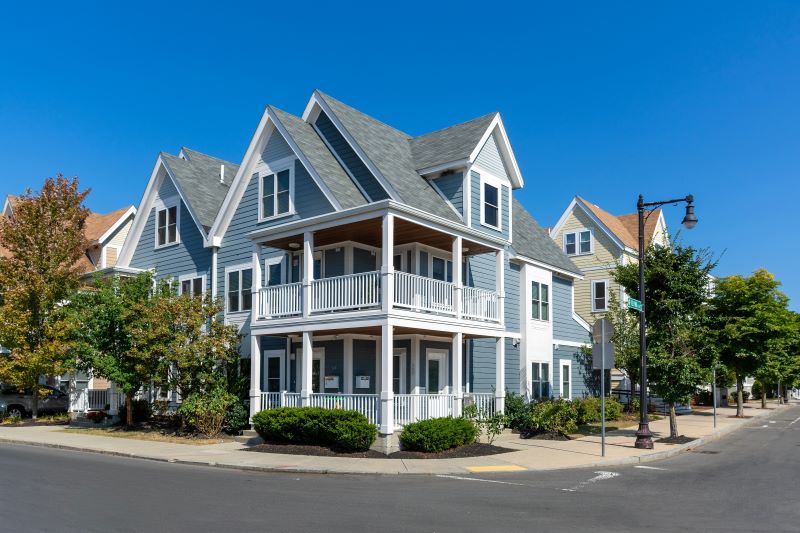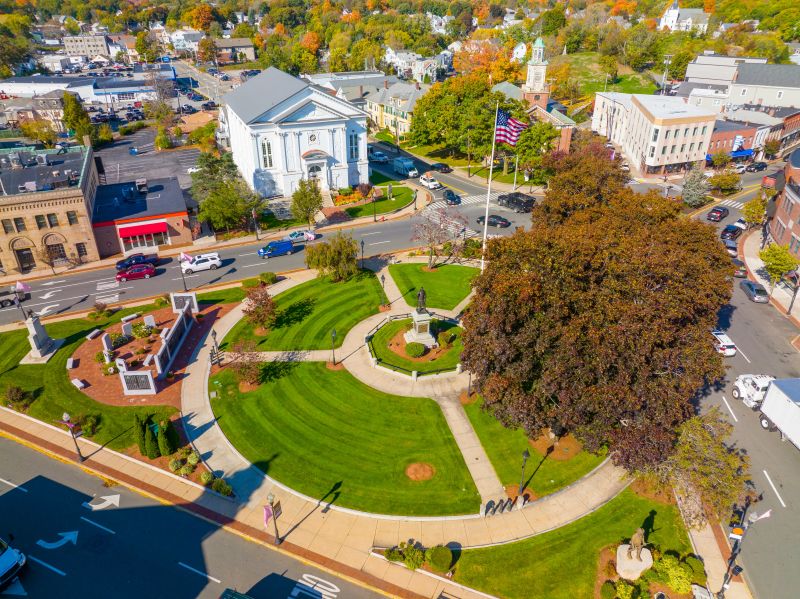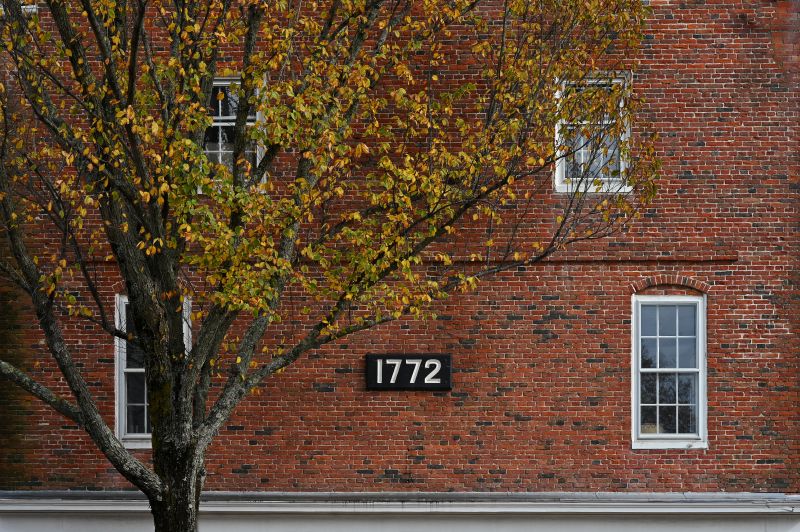
- Renting in Boston: The Pros & Cons
- Multifamily Homeownership: Why It Makes Sense
- Why Boston Is Perfect for Multifamily Investing
- Downsides to Owning a Multifamily Property and How to Manage Them
- Is Multifamily Right for You? Here’s What You Need to Know:
- What Are the Next Steps to Make Multi-Family Homeownership a Reality?
- Conclusion
In a fast-paced and competitive housing market like Greater Boston, deciding whether to rent or buy is one of the biggest financial crossroads you'll face.
With median rents steadily climbing and home values continuing to appreciate, many are wondering if staying in their Boston apartment is truly the smarter long-term choice. While renting offers flexibility, it comes at the cost of building equity, gaining financial leverage, and locking in your monthly housing expenses.
If you’re considering making the leap to homeownership, buying a multifamily property could be your most strategic move—especially in Boston’s high-demand, high-cost environment.

Renting in Boston: The Pros & Cons
Renting can be a practical choice for certain individuals, particularly those in transitional phases of life. It’s well-suited for students or recent graduates who are still figuring out their long-term plans, professionals who are in Boston for short-term work assignments, and individuals who value the freedom to relocate or travel without the commitment of property ownership. Renting also appeals to those who aren’t yet ready to take on the responsibilities that come with maintaining a property, such as repairs, upkeep, or managing tenants.
However, renting comes with notable financial and lifestyle limitations. One of the most significant drawbacks is the lack of equity growth—monthly rent payments go directly to a landlord and build no personal wealth. Renters also miss out on valuable tax benefits that homeowners receive, such as deductions for mortgage interest and property taxes. Additionally, renting offers less stability; landlords can increase rent or choose not to renew a lease, leaving tenants with limited control over their housing situation. There’s also less freedom to personalize the living space or make significant changes, and certain lifestyle choices, like owning a pet, may be restricted.
In a market like Boston, where the average one-bedroom apartment can easily rent for over $2,500 per month, renters are often spending more than $30,000 a year without any long-term financial return. Over time, these payments can significantly hinder wealth-building opportunities that homeownership—particularly in a multifamily property—can provide.

Multifamily Homeownership: Why It Makes Sense
Buying a multifamily home—typically a property with two to four units—offers all the foundational benefits of traditional homeownership, with the added advantage of rental income that can significantly reduce your monthly housing costs. In a high-demand, high-cost market like Boston, this strategy can be a powerful way to build wealth and increase financial stability.
Equity
One of the biggest advantages of owning a multifamily property is the ability to build equity while others help pay your mortgage. With each mortgage payment, your ownership stake in the property grows. When tenants contribute rent, it can offset a portion—or potentially all—of your monthly mortgage payment. This means you're not just covering your living expenses; you’re investing in a valuable asset and positioning yourself for long-term financial gain.
Passive Income
Another major benefit is the opportunity to generate passive income. Boston’s consistently strong rental market, driven by universities, hospitals, and a steady influx of professionals, makes it relatively easy to find reliable tenants. The rental income can be used to fund property improvements, build retirement savings, or help you qualify for future real estate investments.
Tax Advantages
Tax advantages are also a significant perk of multifamily ownership. Owners can deduct a wide range of expenses, including mortgage interest, property taxes, depreciation, maintenance, and property management fees. These deductions can substantially reduce your taxable income, offering savings that renters simply do not have access to.
Living in one unit while renting out the others—commonly referred to as “house hacking”—is a particularly effective strategy for first-time buyers. This approach allows you to significantly lower your personal living costs while gaining experience as a landlord and benefiting from property ownership.
Finally, owning a multifamily property provides greater stability and control compared to renting. Homeowners don’t have to worry about unexpected rent hikes or the uncertainty of lease renewals. You have the freedom to personalize your space, make long-term plans, and take full control of your living environment and financial future.

Why Boston Is Perfect for Multifamily Investing
The Greater Boston area presents a compelling case for multifamily real estate investment due to its unique blend of economic strength, demographic diversity, and long-term housing demand. For those considering homeownership with an investment angle, Boston offers some of the most favorable conditions in the country—especially for buyers interested in multifamily properties.
High Demand
One of the most attractive aspects of Boston's real estate market is the consistently high demand for rental housing. This demand is fueled by several key sectors that make up the backbone of the city’s economy, including world-renowned universities, leading medical institutions, and a rapidly growing tech industry. With institutions like Harvard, MIT, Boston University, and Mass General Hospital drawing students, professionals, and researchers from around the globe, there is a steady influx of renters looking for quality housing. This reliable tenant pool helps reduce vacancy risk and makes it easier for property owners to maintain consistent rental income.
Limited Supply
Another critical factor is Boston’s limited land availability and stringent zoning regulations, which constrain the supply of new housing. The city’s historic layout, combined with preservation restrictions and high construction costs, means there simply isn't enough new inventory to meet the growing demand. This imbalance between supply and demand continues to drive property values upward, making real estate in Boston a relatively stable and appreciating asset over time.
Top Rents
In addition to strong fundamentals, Boston commands premium rents. Due to the city's competitive job market, proximity to top-tier schools, and vibrant urban amenities, tenants are often willing to pay higher monthly rents for well-located units. For multifamily property owners, this translates into strong cash flow potential. The income generated from tenants can not only offset mortgage payments but also contribute to long-term savings and reinvestment opportunities.
Strong Property Appreciation
Boston also boasts a long history of property appreciation that has consistently outperformed many national averages. While real estate markets can fluctuate, Boston’s combination of economic resilience, limited housing stock, and consistent demand has allowed it to maintain upward momentum even during broader market downturns. This makes the city particularly attractive for investors seeking both short-term cash flow and long-term capital appreciation.
Options Across Neighborhoods
Lastly, Boston’s diverse and distinct neighborhoods offer a wide range of multifamily investment opportunities at varying price points. Whether you’re looking in the up-and-coming areas of Dorchester or Mattapan, the established communities of Roslindale and Jamaica Plain, or the rapidly growing neighborhoods of East Boston and Somerville, there’s a multifamily property that can suit your budget and investment goals. Each neighborhood offers its own unique character, tenant demographics, and potential for growth, allowing investors to find the right fit for their strategy.
Altogether, Boston’s economic stability, limited housing inventory, strong rental income potential, and broad neighborhood appeal make it an ideal market for multifamily real estate investment. For buyers looking to build wealth through real estate, Boston remains one of the most promising markets in the country.

Downsides to Owning a Multifamily Property and How to Manage Them
While owning a multifamily property offers many long-term advantages, it’s important to acknowledge the potential challenges and understand how to navigate them effectively. No investment is entirely without risk, and real estate—especially in a market as dynamic as Boston—requires preparation, commitment, and thoughtful planning.
Upfront Costs
One of the first hurdles prospective buyers encounter is the higher upfront cost of purchasing a property. Unlike renting, buying a multifamily home involves a down payment, which can range from 5% to 25% depending on the loan type and financial profile of the buyer. In addition to the down payment, there are closing costs and the need for financial reserves to cover unexpected expenses or periods of vacancy. That said, options like FHA loans and other owner-occupied financing programs can significantly lower the barrier to entry, especially for first-time buyers. These programs are specifically designed to help make multifamily ownership more accessible.
Increased Responsibility
Another consideration is the responsibility that comes with being a landlord. Managing tenants, handling maintenance requests, responding to emergencies, and staying compliant with local housing laws can be time-consuming and, at times, stressful. However, many of these responsibilities can be streamlined or outsourced. Hiring a property management company can relieve you of day-to-day oversight, and developing reliable systems for repairs, tenant screening, and rent collection can make the role much more manageable, particularly over time.
Risk
Fluctuations in property value are also something to be aware of. Like any investment, real estate markets can experience corrections or periods of slower growth. However, Boston's market is underpinned by strong economic fundamentals, including a robust job market, high demand for housing, and limited inventory. These factors help to buffer the city against the kinds of volatility seen in less stable markets, making long-term ownership in Boston generally more resilient.
Commitment
Lastly, there is a level of commitment required when owning a property that renters do not face. Selling a home is a more complex and time-consuming process than simply ending a lease, and real estate should be viewed as a long-term investment rather than a short-term financial move. However, for those prepared to take a strategic and patient approach, this commitment often results in significant financial rewards over time.
Understanding these challenges and having a plan to manage them is key. With the right mindset, resources, and support, the downsides of multifamily ownership can be mitigated, allowing the many benefits of the investment to shine through.

Is Multifamily Right for You? Here’s What You Need to Know:
Making the leap from renting to owning a multifamily property in Boston is a major decision, and it's not just about numbers—it’s about lifestyle, long-term goals, and financial readiness. Multifamily properties are a strong fit for individuals or couples who are financially prepared, plan to remain in Boston for several years, and are motivated to build wealth through real estate.
The strategy which is particularly attractive to first-time buyers is “house hacking”— living in one unit while renting out the others to significantly reduce or eliminate personal housing expenses. It also appeals to renters who may feel priced out of Boston’s single-family home market but still want to own property and invest in a long-term asset.
Ultimately, this path suits those who are entrepreneurial in mindset, open to learning, and ready to take control of their financial future. If you’re someone who views housing not just as a cost but as a vehicle for income and long-term growth, multifamily ownership could be your next best move.
If you're considering whether this move makes sense for you, start by asking a few key questions to assess your situation clearly and realistically:
Are you planning to stay in the area for at least 2 to 5 years?
If you’re committed to remaining in the Boston area for the next several years, buying a multifamily home is worth serious consideration. Real estate investing pays off over time—the longer you own, the more equity you build, the more rental income you can collect, and the greater the impact of market appreciation. Even if your circumstances change down the line, you can always transition the property into a full investment by renting out all the units. But if you're unsure about staying long-term, renting may still be the more practical short-term option, though it comes with no return on investment.
Are you comfortable managing tenants—or hiring help to do so?
Owning a multifamily property comes with landlord responsibilities, from handling maintenance and repairs to navigating tenant relationships and ensuring compliance with local laws. For some, this role can be rewarding, offering control over your investment and deeper involvement in your property’s success. If the idea of managing these tasks feels overwhelming, that doesn’t have to be a dealbreaker—many owners hire professional property managers to handle day-to-day operations. If you're open to learning or delegating, you're well-positioned to succeed.
Do you want to build long-term wealth through real estate?
If your goal is to break out of the rent cycle and start creating financial security, multifamily homeownership is a powerful tool. Each mortgage payment increases your ownership stake, and each rent check from your tenants helps fund your investment. In a city like Boston—where real estate values have historically appreciated and rental demand remains strong—multifamily ownership gives you the opportunity to generate monthly income, build equity, and benefit from long-term value growth.
Can you afford a down payment and understand the responsibilities?
Buying property requires upfront costs, including a down payment, closing costs, and reserves for potential maintenance or vacancies. Fortunately, financing options like FHA loans make it easier for owner-occupants to enter the market, with down payments as low as 3.5% for those who qualify. What matters most is understanding the long-term responsibilities of owning a property—financially and operationally—and being ready to manage or outsource those duties responsibly.

What Are the Next Steps to Make Multi-Family Homeownership a Reality?
Evaluate your financial readiness carefully.
Before you begin seriously searching for a multifamily property, take a close look at your financial situation. Review your credit score, as it will directly impact the types of loans and interest rates available to you. Examine your savings to ensure you have enough for a down payment, closing costs, and reserves for unexpected repairs or vacancies. Also, assess your income and debt-to-income ratio to determine what monthly mortgage payment you can comfortably afford. Once you’ve reviewed your financials, the next step is to speak with a mortgage lender. A qualified lender can help you understand your loan options, including programs tailored to owner-occupants like FHA loans, which often allow for lower down payments. Getting pre-approved not only clarifies your budget, but also strengthens your position when you're ready to make an offer.
Take time to explore Boston’s neighborhoods in depth.
The city and its surrounding communities offer a wide variety of multifamily housing options, each with its own distinct character, price points, and tenant demographics. Neighborhoods like Dorchester and Mattapan may offer more accessible entry points and strong rental demand, while areas such as East Boston, Somerville, and Roslindale present opportunities for both appreciation and cash flow. Consider factors such as proximity to public transportation, local amenities, school districts, and future development plans, as these can significantly influence both rental income and long-term property value. Your choice of neighborhood should align with your goals—whether you’re aiming to maximize returns, live in a vibrant area while offsetting your mortgage, or invest in a place with strong potential for appreciation.
Assemble a knowledgeable and reliable real estate team.
Multifamily investing is complex, and surrounding yourself with the right professionals can make all the difference. Start with a real estate agent who specializes in multifamily properties and understands both the residential and investment sides of the market. They’ll be instrumental in helping you identify quality opportunities, run the numbers, and negotiate favorable terms. You'll also need a dependable lender who can guide you through financing options and the pre-approval process. A thorough home inspector is essential to assess the condition of any property you're considering, especially since multifamily homes often come with more moving parts than single-family houses. Depending on your lifestyle and experience, you may also want to connect with a property manager early on, particularly if you plan to rent out multiple units and want help managing day-to-day operations.
Educate yourself on what it means to be a landlord.
Owning and managing rental property comes with both legal and practical responsibilities. It’s important to become familiar with landlord-tenant laws specific to Massachusetts, including rules around security deposits, eviction procedures, habitability standards, and fair housing regulations. Beyond legal compliance, understanding the fundamentals of rental management—such as tenant screening, lease agreements, rent collection, and maintenance workflows—will help you create a smooth, professional experience for both yourself and your tenants. The better prepared you are for these responsibilities, the more confidently you’ll step into ownership.
Begin touring properties with a clear vision and strategic goals.
Once your financing is secured and your team is in place, it’s time to start visiting potential properties. Approach each showing with a clear understanding of what you’re looking to achieve—whether it's lowering your own housing costs by living in one unit and renting out others, maximizing rental income, or holding the property for long-term appreciation. Evaluate each building not just for its current condition, but also for its potential: Are there opportunities to raise rents, add value through improvements, or attract better tenants? Assess the numbers carefully, factoring in projected income, expenses, and cash flow. Touring properties with a goal-driven mindset will help you make smart, informed decisions as you move forward with your investment.

Conclusion
Renting may offer flexibility, but it doesn’t offer financial growth. If you’re ready to put down roots in Boston, build a stable future, and stop paying someone else’s mortgage, buying a multifamily property could be one of the most strategic moves you ever make. You’ll gain the power of equity, the benefit of rental income, and the opportunity to participate in one of the most resilient real estate markets in the country. With the right mindset, planning, and professional guidance, your next rent payment could be your last.
If you're ready to get started, connect with a local real estate expert with Boston Pads who specializes in multifamily investments and take the first step toward building your future in Boston.
Disclaimer: The information provided in this article is for general informational purposes only and should not be construed as legal, financial, or real estate advice. While we strive to ensure accuracy, policies and regulations may change, and individual circumstances may vary. Readers are encouraged to conduct their own research and consult with legal advisors and/or local authorities before making any housing or investment decisions. The opinions expressed are those of the author and do not necessarily reflect the views of any affiliated organizations or entities.

Kristian Kotov
Published April 14, 2025










